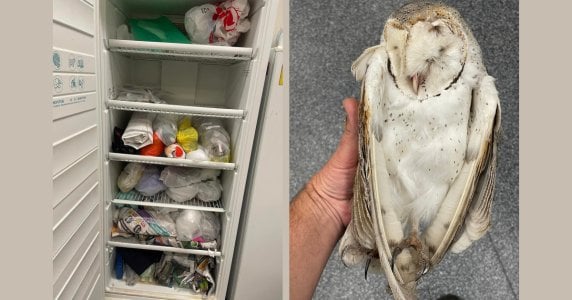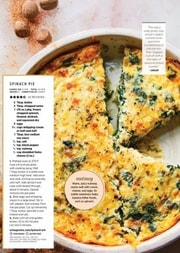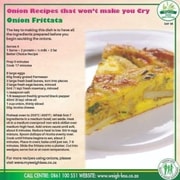Shocking freezer photo triggers urgent cry for help to major retailers
- Replies 3
Content warning: This article contains disturbing images of deceased animals which may be disturbing for some. Reader discretion is advised.
In a chilling revelation that has sparked an urgent plea to some of Australia's largest retailers, a scientist has shared a disturbing image of his freezer.
The photo has prompted a public outcry and calls for action from Coles, Woolworths, and Bunnings to address the issue.
This situation underscores the growing need for retailers to respond swiftly to consumer grievances and manage the supply chain effectively.
Dr Rob Davis, a Senior Lecturer at Edith Cowan University in Western Australia, has become an inadvertent custodian of these deceased creatures, storing them for analysis.
His freezer, filled with ‘50 to 100 dead owls’ collected in just ‘the last month’, serves as a grim testament to the ‘unnecessarily harmful’ rodent poisons sold by major retailers such as Woolworths, Coles, and Bunnings.
According to him, they not only devastate ‘native wildlife’ but may also ‘harm people’.

Dr Davis preserved the animals for study and noted that many of the deceased are ‘beautiful barn owls’ commonly found across Australia, which mainly eat rodents.
He explained that the rodenticides responsible for killing these owls contain active ingredients like brodifacoum and bromadiolone, which have ‘a very long half-life’ of up to 300 days in the environment.
Davis explained that the poison accumulates in the livers of animals that consume the rodents, and ‘over time, this poison builds up to lethal levels and kills animals such as owls’.
‘Anticoagulant rodenticides, especially those so-called “second-generation” products [SGAR’s—second generation anticoagulant rodenticides] are killing our native wildlife and probably affecting human health. Consumers do not need to be buying these products and we strongly advocate that they are banned from consumer sale,’ he stated.
‘These SGARs work by preventing blood clotting and lead to rats and mice bleeding out. Instead of the SGARs, a better choice or non-anti-coagulant baits such as Ratsak Naturals that use a different mechanism to kill rodents.’
‘The first-generation baits containing warfarin and coumatetralyl are much better choices, too, with substantially shorter environment residence times,’ Dr Davis added.
Ratsak Naturals can be found at major retailers such as Woolworths and Bunnings.
Dr Davis noted that, based on pathological signs in the dead animals he's examined, it's ‘obvious from pathological signs’ that ‘poisoning has occurred’.
‘We are drowning in dead owls. There would be, on average, two to four a day brought in to wildlife carers that then make their way to us. I have probably 50 to 100 in my freezer just from the last month or two,’ he said, adding that figure is ‘sadly not at all uncommon’.
‘Animals take some time to die [after consuming the poison] and often require multiple feeds. That means plenty of opportunity for predators like owls to eat them. There is a risk of direct exposure from any animals eating SGAR baits and vets treat many cats and dogs for poisoning each year as well.’
Dr Davis urged Woolworths, Coles, Bunnings, and other retailers to immediately stop selling rodenticides containing toxins like brodifacoum and bromadiolone, but said that ‘unfortunately so far they have refused to listen’.
‘As a consequence, myself and other scientists recently went to Canberra to lobby the Australian Pesticides And Veterinary Medicines Authority,’ he shared.
‘We have presented all the science that is unequivocal on the environmental impacts of these poisons. Australia is one of the few countries in the world that still allows consumers to buy these products as they are banned in Europe, the USA, Malaysia, Thailand and many other countries.’
‘The writing is on the wall and Australia is now far behind all developed countries in allowing these nasty poisons to continue to be used with scant regard for environmental or human health impacts,’ Dr Davis continued.
He revealed that his groundbreaking research found an astonishing 73 per cent of all the birds studied had been poisoned.
‘Work by other researchers has further uncovered these poisons in Australian frogs as well as possums, wedge-tailed eagles, and a wide range of native animals,’ he noted.
In response to the outcry, Bunnings Director of Merchandise Cameron Rist highlighted that ‘we offer rodent repellers, live catch traps and regular rat traps’ as alternatives.
‘We know how important rodent control is to customers and we offer a wide range of products allowing customers to choose the option that’s right for them,’ Mr Rist explained.
‘For customers looking for alternatives to rodenticides, we offer rodent repellers, live catch traps and regular rat traps. We sell rodenticides in line with guidance from the federal regulator and we continue to follow its advice in this area.’
Woolworths also defended its stance, stating that all rodenticides sold adhered to local laws.
‘All rodenticides sold at Woolworths must comply with standards set by the Australian Pesticides and Veterinary Medicines Authority,’ a spokesperson stated.
‘We have and will continue to consult the Authority on product safety matters. As always, we advise customers to follow all instructions outlined on the product labelling and use it only as intended.’
Meanwhile, Coles had not responded to questions at the moment.
The alarming revelations about the harmful effects of rodenticides on native wildlife have intensified concerns about the safety and impact of these products.
As discussions continue about the need for more responsible pest control solutions, another recent incident highlights the urgent need to address wildlife threats.
In a distressing turn of events, a woman's rescue of a troubled owl has shed light on the severe challenges local wildlife face, revealing a ‘painful and horrific’ reality that underscores the broader issue of wildlife protection.
 Have you found effective and wildlife-friendly alternatives? We invite you to share your thoughts and experiences with rodent control in the comments below.
Have you found effective and wildlife-friendly alternatives? We invite you to share your thoughts and experiences with rodent control in the comments below.
In a chilling revelation that has sparked an urgent plea to some of Australia's largest retailers, a scientist has shared a disturbing image of his freezer.
The photo has prompted a public outcry and calls for action from Coles, Woolworths, and Bunnings to address the issue.
This situation underscores the growing need for retailers to respond swiftly to consumer grievances and manage the supply chain effectively.
Dr Rob Davis, a Senior Lecturer at Edith Cowan University in Western Australia, has become an inadvertent custodian of these deceased creatures, storing them for analysis.
His freezer, filled with ‘50 to 100 dead owls’ collected in just ‘the last month’, serves as a grim testament to the ‘unnecessarily harmful’ rodent poisons sold by major retailers such as Woolworths, Coles, and Bunnings.
According to him, they not only devastate ‘native wildlife’ but may also ‘harm people’.

Australian wildlife rescuers were overwhelmed by dead owls, attributed to second-generation anticoagulant rodenticides (SGARs) sold by major retailers like Woolworths, Coles, and Bunnings. Credit: Facebook / The Wildlife Lab
Dr Davis preserved the animals for study and noted that many of the deceased are ‘beautiful barn owls’ commonly found across Australia, which mainly eat rodents.
He explained that the rodenticides responsible for killing these owls contain active ingredients like brodifacoum and bromadiolone, which have ‘a very long half-life’ of up to 300 days in the environment.
Davis explained that the poison accumulates in the livers of animals that consume the rodents, and ‘over time, this poison builds up to lethal levels and kills animals such as owls’.
‘Anticoagulant rodenticides, especially those so-called “second-generation” products [SGAR’s—second generation anticoagulant rodenticides] are killing our native wildlife and probably affecting human health. Consumers do not need to be buying these products and we strongly advocate that they are banned from consumer sale,’ he stated.
‘These SGARs work by preventing blood clotting and lead to rats and mice bleeding out. Instead of the SGARs, a better choice or non-anti-coagulant baits such as Ratsak Naturals that use a different mechanism to kill rodents.’
‘The first-generation baits containing warfarin and coumatetralyl are much better choices, too, with substantially shorter environment residence times,’ Dr Davis added.
Ratsak Naturals can be found at major retailers such as Woolworths and Bunnings.
Dr Davis noted that, based on pathological signs in the dead animals he's examined, it's ‘obvious from pathological signs’ that ‘poisoning has occurred’.
‘We are drowning in dead owls. There would be, on average, two to four a day brought in to wildlife carers that then make their way to us. I have probably 50 to 100 in my freezer just from the last month or two,’ he said, adding that figure is ‘sadly not at all uncommon’.
‘Animals take some time to die [after consuming the poison] and often require multiple feeds. That means plenty of opportunity for predators like owls to eat them. There is a risk of direct exposure from any animals eating SGAR baits and vets treat many cats and dogs for poisoning each year as well.’
Dr Davis urged Woolworths, Coles, Bunnings, and other retailers to immediately stop selling rodenticides containing toxins like brodifacoum and bromadiolone, but said that ‘unfortunately so far they have refused to listen’.
‘As a consequence, myself and other scientists recently went to Canberra to lobby the Australian Pesticides And Veterinary Medicines Authority,’ he shared.
‘We have presented all the science that is unequivocal on the environmental impacts of these poisons. Australia is one of the few countries in the world that still allows consumers to buy these products as they are banned in Europe, the USA, Malaysia, Thailand and many other countries.’
‘The writing is on the wall and Australia is now far behind all developed countries in allowing these nasty poisons to continue to be used with scant regard for environmental or human health impacts,’ Dr Davis continued.
He revealed that his groundbreaking research found an astonishing 73 per cent of all the birds studied had been poisoned.
‘Work by other researchers has further uncovered these poisons in Australian frogs as well as possums, wedge-tailed eagles, and a wide range of native animals,’ he noted.
In response to the outcry, Bunnings Director of Merchandise Cameron Rist highlighted that ‘we offer rodent repellers, live catch traps and regular rat traps’ as alternatives.
‘We know how important rodent control is to customers and we offer a wide range of products allowing customers to choose the option that’s right for them,’ Mr Rist explained.
‘For customers looking for alternatives to rodenticides, we offer rodent repellers, live catch traps and regular rat traps. We sell rodenticides in line with guidance from the federal regulator and we continue to follow its advice in this area.’
Woolworths also defended its stance, stating that all rodenticides sold adhered to local laws.
‘All rodenticides sold at Woolworths must comply with standards set by the Australian Pesticides and Veterinary Medicines Authority,’ a spokesperson stated.
‘We have and will continue to consult the Authority on product safety matters. As always, we advise customers to follow all instructions outlined on the product labelling and use it only as intended.’
Meanwhile, Coles had not responded to questions at the moment.
The alarming revelations about the harmful effects of rodenticides on native wildlife have intensified concerns about the safety and impact of these products.
As discussions continue about the need for more responsible pest control solutions, another recent incident highlights the urgent need to address wildlife threats.
In a distressing turn of events, a woman's rescue of a troubled owl has shed light on the severe challenges local wildlife face, revealing a ‘painful and horrific’ reality that underscores the broader issue of wildlife protection.
Key Takeaways
- Australian wildlife rescuers were overwhelmed by the number of dead owls, which they attributed to second-generation anticoagulant rodenticides (SGARs) sold by major retailers like Woolworths, Coles, and Bunnings.
- Dr Rob Davis, a scientist, has called for an immediate ban on these rodenticides, stating they are harming native wildlife and potentially human health, with his own freezer filled with 50 to 100 dead owls as evidence.
- Dr Davis advocated for the use of first-generation baits or non-anti-coagulant alternatives, such as Ratsak Naturals, instead of SGARs, due to their lesser environmental impact and shorter residence times.
- Representatives from Bunnings and Woolworths have responded by defending their product range and adherence to federal regulations, while Coles did not respond by the time of publishing.








